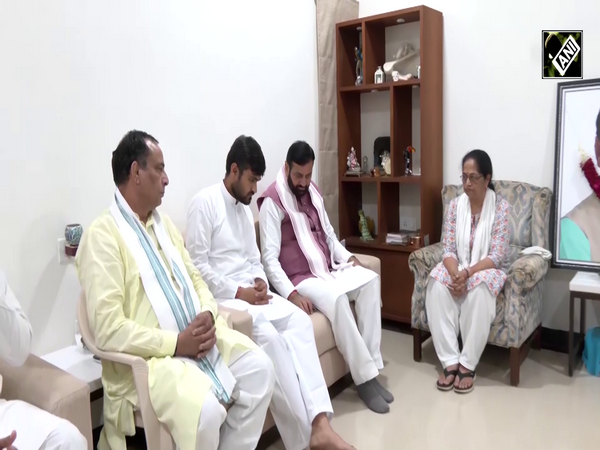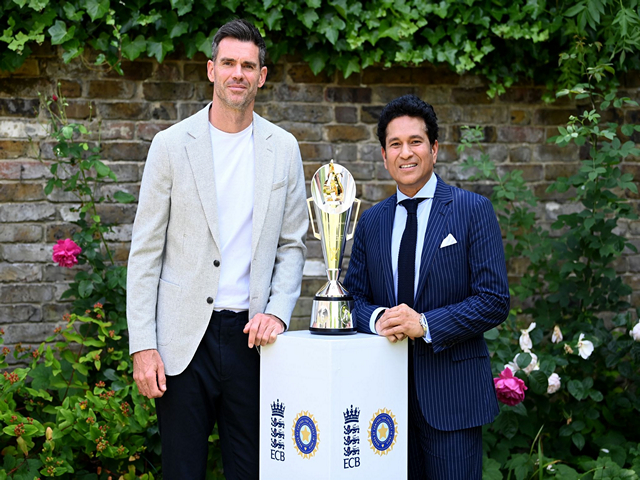
Inquiry into Justice Varma flags conflicting testimonies, communication gaps, and Judicial integrity issues
Jun 19, 2025
New Delhi [India], June 19 : A leaked confidential judicial inquiry report has unveiled stark contradictions between testimonies of the domestic staff and independent witness accounts in the investigation into the fire and alleged burning of currency notes at the government residence of Justice Yashwant Varma, the then sitting judge of Delhi High Court who was subsequently repatriated to Allahabad High Court.
The internal inquiry, mandated by the Supreme Court, also flagged significant lapses in communication protocol and raised serious questions about transparency, oversight, and judicial accountability.
According to the 64-page report submitted to Chief Justice of India Sanjiv Khanna on May 4, 2025, by a three-member panel comprising Justices Sheel Nagu, GS Sandhawalia, and Anu Sivaraman, burnt cash was found in the storeroom of 30 Tughlak Crescent, Justice Varma's official New Delhi residence.
Based on forensic and electronic evidence, the committee concluded that the currency was secretly removed during the early hours of March 15, just before the matter became public.
The inquiry revealed a troubling pattern of uniformly exculpatory statements by Justice Varma's household staff members. Most of them--employed for several years and hailing from his native district--denied having seen any currency or suspicious activity, even during the fire. One staff member oversees a second family residence and has been with the household since 2012. Another, closely linked to individuals in the judiciary, has served since Justice Varma's early days as an advocate. The committee flagged their consistent denials as "not fully credible," especially when contrasted with third-party accounts.
In sharp contrast, independent witnesses--especially personnel from the fire department and local law enforcement--confirmed observing large quantities of burnt currency. These responders, unfamiliar with the household and present only due to the emergency, were viewed by the committee as more reliable. Their corroborative statements aligned with physical evidence and digital records.
The report also highlights suspicious gaps in official communication records. A senior aide, directed to stay overnight at the residence, was in continuous contact with Justice Varma. Notably, a late-night call between them lasted nearly four minutes, yet the aide later claimed to have been unaware of the currency incident until several days later. This contradicted CCTV footage, metadata, and statements from emergency personnel on the scene.
Adding to the opacity, several critical exchanges that night were conducted through encrypted messaging applications, rendering them inaccessible to investigators. Witnesses indicated that sensitive communications in the household were routinely handled through such platforms, making verification of timelines and post-incident instructions exceedingly difficult, the report said.
The committee also questioned Justice Varma's conduct after the alleged incident. Despite the gravity of the situation, he neither alerted the police nor reported the matter to the Chief Justice of the Delhi High Court or the Chief Justice of India. Instead, on March 20, he "respectfully accepted" an abrupt transfer order to the Allahabad High Court--well before the deadline for response. The report notes that such immediate compliance, without seeking clarity or time to consult family or colleagues, is inconsistent with the actions of a judge with an unblemished record of over a decade.
On April 5, 2025, Justice Varma was sworn in as a judge of the Allahabad High Court in a private ceremony, skipping the usual public protocol. The move triggered widespread criticism, including a Public Interest Litigation filed before the Lucknow Bench of the High Court seeking a deferment of the oath. The Allahabad High Court Bar Association condemned the Collegium's decision, stating, "We are not a dumping ground," and called for greater transparency in judicial transfers and appointments.
Despite his formal induction, Justice Varma has not been assigned any judicial or administrative duties at the Allahabad High Court.
After interviewing 55 witnesses and reviewing digital, forensic, and circumstantial evidence, the judicial panel concluded that the misconduct was "serious enough to call for the initiation of proceedings for removal" of Justice Yashwant Varma. The findings are now under consideration by the Chief Justice of India and may pave the way for further action under constitutional provisions.
























